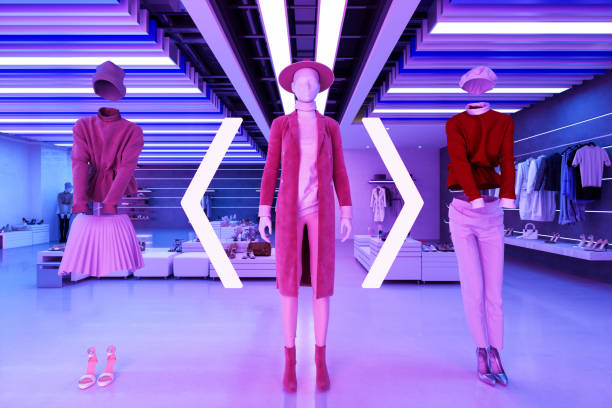Businesses around the world have changed their priorities as the pandemic spreads. The virus has affected almost all industries. The fashion retail industry is the worst affected, as it is the least important to the customers. The pandemic’s impact on the fashion and retail industries appears to have spread around the globe.
An in-depth look at the future trends that will dominate fashion retailing during the Covid Era.
Businesses around the world have changed their priorities as the pandemic spreads. Almost every industry has been affected by the virus. The fashion retail industry is the worst affected, as it is the least important to the customers. Globally, the impact of the pandemic is being felt by the fashion and retail industries. Consumer attitudes and behavior patterns are rapidly changing, and it is hard to predict standard consumer behavior. The retail landscape will likely change significantly in the COVID-19 era.
Increased acceptance of electronic commerce
Most brands already use e-commerce as their main liquidation channel. Online stores will act as a bridge for customers and businesses, as many customers are still reluctant to visit physical stores even as the lockdown is eased out. Retailers that provide multi-channel experiences and offer personalized product deliveries to customers will continue to outperform their competitors.
Companies must, therefore, invest in a strong online presence and provide solid e-commerce services. Sellers must embrace the digital world. They can create an online store that allows buyers to purchase the product they want easily easily.
Local shopping is coming soon.
Small independent stores are likely to be the preferred choice of consumers in the fashion retail sector, as opposed to large department store chains. Customers are choosing to shop locally to minimize the impact of COVID-19, as it is easier to maintain social distancing in smaller stores rather than in large malls. In the months ahead, physical shopping could become a necessity only. Buyers may adopt a new mantra, namely shopping locally.’
Augmented Reality
Fitting rooms will be less popular as fewer people prefer to shop in person. The retail industry has a great opportunity to use augmented reality. Fashion retail will be transformed by the new trend of virtual fittings and trying on clothes from home. It will improve the user experience. Companies should make the most of this opportunity.
Sustainable living is a decision.
Sustainability is one of the major trends that will impact the retail sector after COVID. Numerous studies have shown that the fashion industry ranks among the most polluting in the world. Consumers are becoming more aware of climate change and the effects their purchases have on the environment, especially in the physical products category.
This trend has been accentuated by the recent coronavirus pandemic, which many people are now able to connect with the climate crisis.
With the increasing emphasis on working from home, customers want clothing that will last. They also wish for fashions without seasons. Eco-friendly and quality products are preferred to cheap, throwaway items.
Retailers in the fashion sector must ensure that all of their raw materials and supply chains are sustainable. It is important to invest in eco-friendly products so that consumers will choose them.
Prepare for the new reality.
Fashion brands’ initial response to the pandemic included implementing measures to protect employees and conserve cash. Businesses should take various measures to prepare for a ‘new norm’ in the post-pandemic era.
In the short term, they should concentrate on resizing their operations and upgrading sales channels. They can also adopt new technologies. The wholesale and retail partnership should be reset, and the sales process should be streamlined. To provide the best e-commerce experience, companies need to upgrade and expand their websites. They can plan to extend ties with platforms that offer multiple brands, such as Amazon. Retailers can benefit from reducing supply costs and increasing their flexibility through an efficient inventory management system.
The pandemic has affected almost all aspects of our lives, including the fashion and retail sectors. The fashion retail industry will also change with the changing consumer behavior. Retailers can turn these unexpected developments into profitable opportunities by focusing their attention on domestic opportunities. This will increase business prospects during the COVID period.




